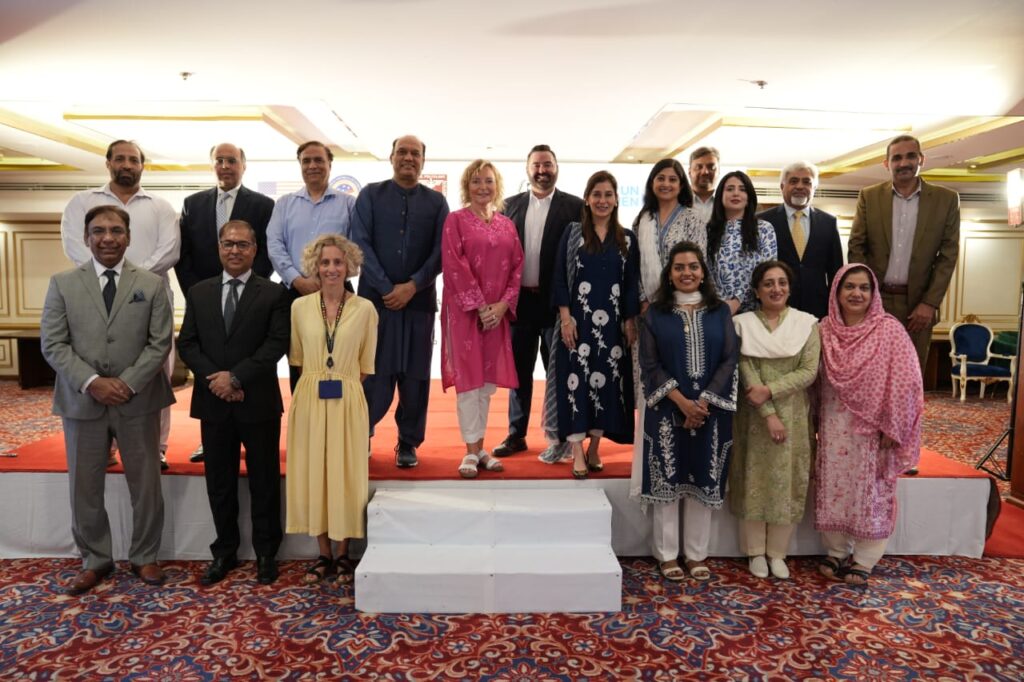
Sexual violence is a global challenge that requires collective action, Carrie
Islamabad : – The Federal Government Polyclinic Hospital, with technical support from UN Women and funding from the U.S. Embassy’s Office of International Narcotics and Law Enforcement (INL), has launched the Anti-Rape Crisis Cell (ARCC) at Polyclinic Hospital in Islamabad as part of the Tahaffuz project.
Anti-Rape Crisis Cells represent a unified effort to combat sexual violence and empower survivors in their pursuit of justice and healing. These facilities will serve as essential resource centers, providing a range of services to survivors, including medical and psychological support, legal aid, and counseling. The ARCC will operate around the clock with robust security measures in place.
Pakistan’s first-ever Anti-Rape Crisis Cell was launched at the Karachi Police Surgeon’s Office in August 2023, with support from the United States (INL) and technical assistance from UN Women. Another Anti-Rape Crisis Cell was established at Nishtar Hospital in Multan in November 2023.
The event began with a warm welcome from Dr. Naushin Farooq, Head of Department Gynecologist, FG Polyclinic Hospital. Her words of encouragement and commitment to the cause set the tone for the ceremony, highlighting the government’s dedication to eradicating sexual violence and providing comprehensive support to survivors.
Saman Ahsan, UN Women OIC, addressed the audience, emphasizing the critical importance of Anti-Rape Crisis Cells as foundational centers for consolidated services for rape survivors. She stated, “Anti-Rape Crisis Cells serve as essential pillars in our collective efforts to combat sexual violence and ensure the rights and well-being of rape survivors. By providing comprehensive services and support, these cells play a pivotal role in empowering survivors to reclaim their lives and seek justice.”
The launch of this essential facility in Islamabad represents a significant advancement in the quest for justice and support for survivors of sexual assault. The Deputy Director for INL, Carrie Basnight highlighted the U.S. government’s commitment to combating sexual violence and advocating for the protection of survivors’ rights in Pakistan. “I commend the Federal Government and UN Women for establishing the Anti-Rape Crisis Cell. Sexual violence is not only a local issue but a global challenge that requires collective action. The international community stands united in efforts to fight sexual violence and ensure survivors have the resources needed for recovery and justice.”
Dr. Sophia Younas, Deputy Director Health at the Ministry of National Health Services Regulations and Coordination emphasized the Pakistani government’s commitment to eliminating sexual violence and offering extensive support to survivors.
Sen. Ayesha Raza Farooq, Chairperson of the Special Committee on Anti-Rape (Investigation & Trial) Act, 2021, remarked that the ARCC facility in Islamabad underscores the government’s commitment to enhancing the Islamabad Capital Territory (ICT) “As we gather to inaugurate Islamabad’s Anti-Rape Crisis Cell, we mark a crucial milestone in our unwavering pursuit of justice and safety for all citizens. The creation of this Crisis Cell highlights the government’s dedication and the collaborative efforts of various stakeholders in our ongoing fight against sexual violence.”